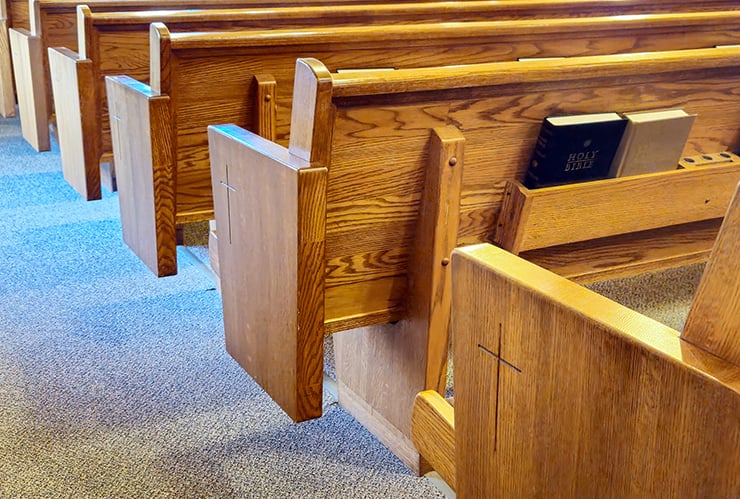Traditionally, churches in America welcome all who seek to attend. Many churches that boast of their tolerance today, however, have grown more selective about who may attend their services, as evidenced by a sign on the St. Paul and St. Andrew Methodist Church in New York City: “ICE and Homeland Security is not permitted.”
The Trump administration’s laser focus on fixing the nation’s illegal immigration problem has identified many church leaders among those who enable this lawlessness by claiming an obligation to provide sanctuary for those who violate our immigration laws. Trump’s moves have created a long-overdue national discussion on the acceptance of churches as hiding places for criminals.
Last month, the White House repealed Biden-era rules that allowed criminal aliens to hide from law enforcement in and around places like schools, churches, hospitals, and protest rallies to avoid arrest, while instructing immigration agents to use common sense when doing their jobs in sensitive areas. Some church leaders are citing a long-standing tradition in Christianity that churches should serve as a refuge for those wanted by the law.
The issue recently surfaced again when illegal alien and activist Jeannette Vizguerra, who hid in a Denver church for years to avoid deportation, was taken into custody in nearby Aurora. Not surprisingly, Denver’s sanctuary mayor, Mike Johnston, turned the arrest into an ongoing public lecture on the evils of immigration enforcement.
“This is not immigration enforcement. This is Soviet-style political persecution of political dissidents under the guise of immigration enforcement,” the third-worst sanctuary mayor in America said. “This is not someone with a criminal record. This is the mom of American citizens who works at Target.”
Johnston’s propagandizing aside, Vizguerra is no angel. In 2009, she was the subject of an ICE detainer in Denver and was convicted of using a false Social Security number. She was sentenced to 23 days in jail. After being released by Immigration and Customs enforcement (ICE), she was convicted of failure to display proof of insurance and driving without a license, and ordered to pay fines. ICE’s Denver office claims she was facing a final order of deportation when arrested last week.
Permitting a so-called religious exception that would allow Vizguerra to evade authorities by hiding in a church would be an absurd invitation to lawlessness. If illegal immigrants know they are safe from the law inside places of worship, what other kinds of criminals are churches prepared to shield from justice? If the Denver church that enabled Vizguerra is off-limits to ICE, what is to stop radical clergy members from declaring the Denver Broncos’ 76,125-seat Empower Field at Mile High stadium to be a place of worship, and enable the entire Tren de Aragua gangster population in Denver to avoid deportation?
The debate has also resulted in the expected litigation from those looking to thwart further immigration enforcement. The Mennonite Church USA has filed suit, alleging that Trump’s policies make illegal aliens fear going to their services, thus burdening these groups’ religious exercise in violation of both the Free Exercise Clause of the First Amendment and the Religious Freedom Restoration Act.
In a brief pushing back on that claim, the Immigration Reform Law Institute argued that if illegal aliens hesitate to attend plaintiffs’ religious services, it is more likely because the overall increase in enforcement makes them cautious, rather than because of a modification in an obscure agency memo they probably do not even know about.
Groups like the Mennonite Church are making the argument that the Department of Homeland Security’s (DHS) enforcement efforts deter attendance at their services, when the attendants in question have no legal right to be in the country and may already be facing final orders of deportation.
The debate over churches as immigration sanctuaries is just a microcosm of the larger sanctuary city issue. America is not an a la carte dinner menu when it comes to law enforcement. Citizens do not have the right to pick which laws they will obey and which ones they will defy in the name of religious freedom. The same people arguing for immigration sanctuaries would likely have a problem with jurisdictions harboring those who find our firearms laws to be onerous and choose to own military-grade automatic weapons.
Religious freedom is a cherished tenet in this country. It is not, however, a freedom that should be enjoyed at the expense of national sovereignty.

Leave a Reply